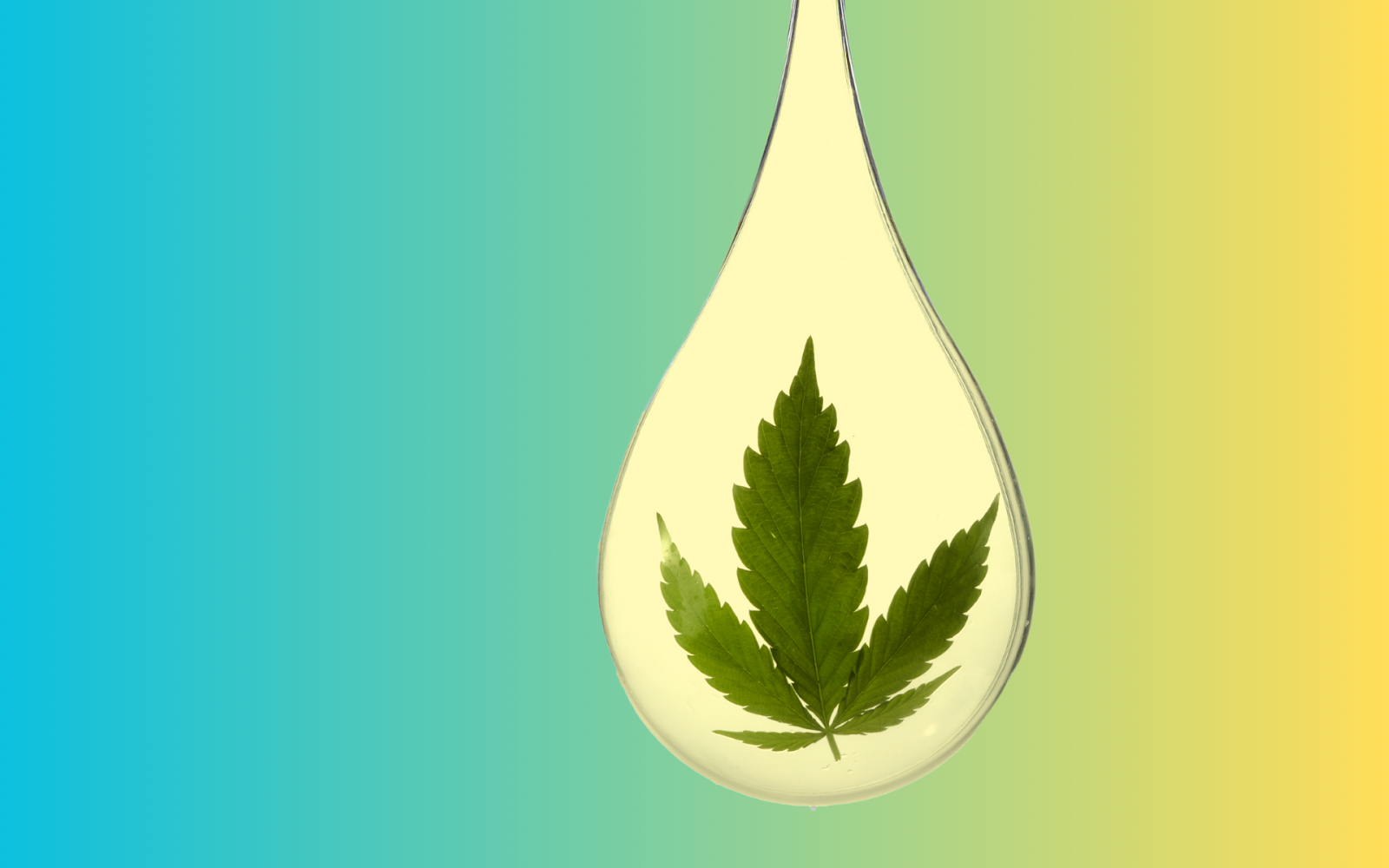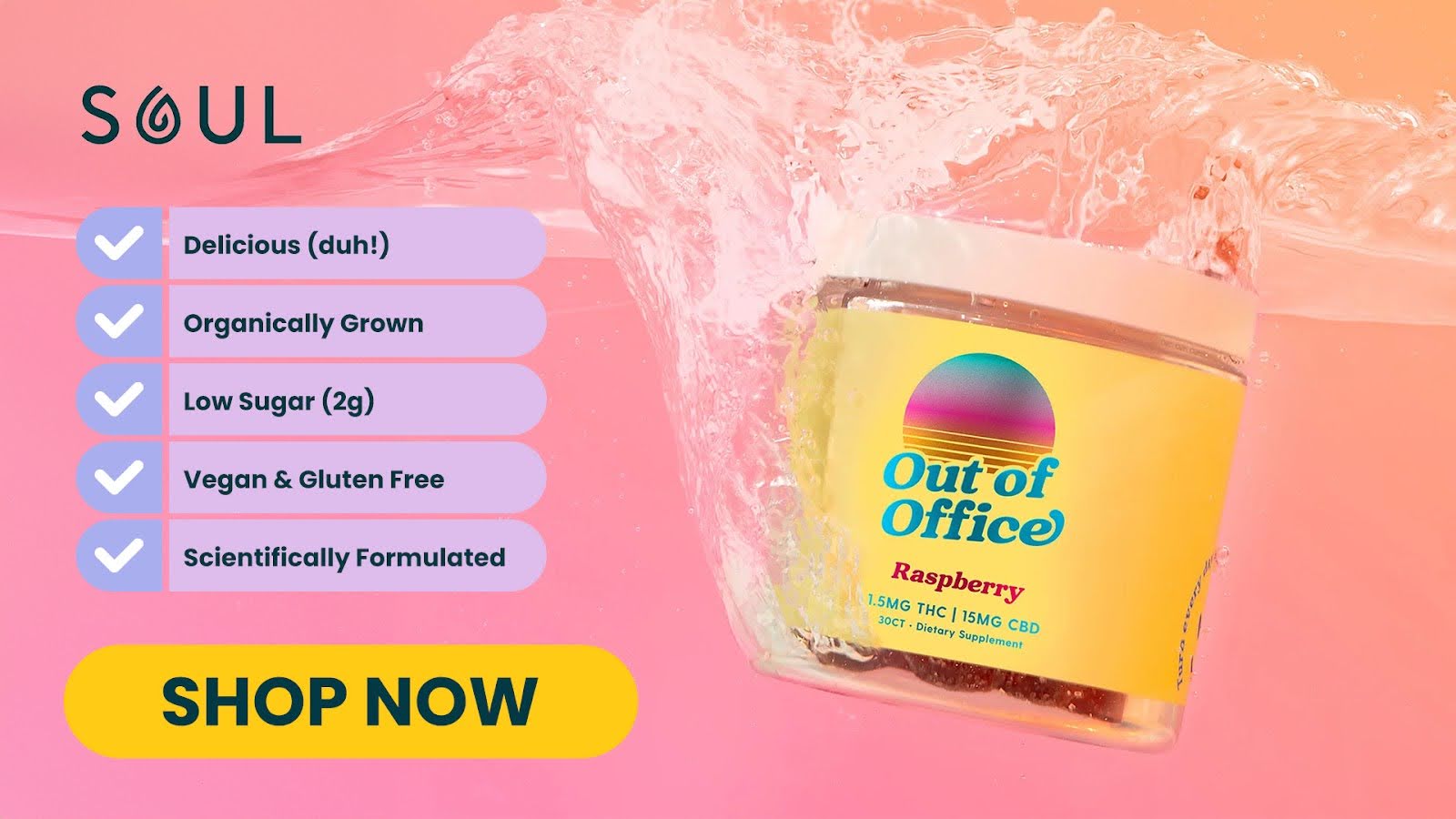
Key Takeaways:
- Versatility and Convenience: Liquid THC offers a discreet and versatile method of cannabis consumption, suitable for a variety of uses including vaporization, sublingual absorption, and as an additive in food and beverages.
- Technological Innovations: Advanced extraction methods and product innovations like nanoemulsions enhance the bioavailability and efficacy of liquid THC, leading to more effective and user-friendly products.
- Regulatory Challenges: The evolving legal landscape and regulatory requirements for liquid THC vary widely, affecting accessibility and industry standards, underscoring the importance of staying informed on local cannabis laws.
As a pioneer in the cannabis industry, Soul is dedicated to advancing how people experience THC through innovation and expertise. Our commitment to quality and consumer satisfaction is reflected in every product we offer, crafted to enhance wellness and elevate your daily life. In this piece, we explore how liquid THC is revolutionizing the cannabis consumption landscape. We'll go into the various benefits of liquid THC over traditional forms, address the potential challenges and considerations it brings, and discuss the promising future that lies ahead with technological advancements in its production. Join us as we uncover the transformative impact of liquid THC and its growing role in shaping modern cannabis culture.
The Evolution Of Cannabis Consumption
Cannabis consumption has undergone a remarkable evolution over the decades. From the traditional smoking of joints to the sophisticated use of vaporizers and edibles, each advancement has catered to a broader spectrum of users with specific needs and preferences. Liquid THC represents the latest milestone in this evolution. Unlike smoking, which can be harsh on the lungs, or edibles, which may take longer to take effect, liquid THC offers a smoother, more controllable experience. It can be consumed in several ways, including vaporizers, tinctures, and as an additive in foods and drinks, providing versatility that was previously unimaginable. This flexibility has not only broadened its appeal across different demographics but also paved the way for further innovations in how cannabis is perceived and used.
Benefits Of Liquid THC Over Traditional Forms
Liquid THC offers several advantages over traditional forms of cannabis consumption, making it an attractive option for many users. Here are some of the key benefits:
Precision Dosing
Liquid THC allows for exact measurement of dosage, which is particularly beneficial for medicinal users who need consistent and precise doses for their treatment. This level of control is harder to achieve with dried flower and even some edibles. The ability to fine-tune dosage helps in managing symptoms more effectively and minimizes the risk of side effects associated with overconsumption.
Quick Onset Of Effects
Unlike edibles, which must be digested and can take up to an hour or more to take effect, liquid THC can be absorbed quickly, especially when used sublingually or inhaled via vaporizers. This rapid onset is crucial for those who use THC for pain relief or anxiety management. The immediacy of the effects makes it easier for users to manage acute symptoms and adjust their dosage based on real-time needs.
Discreet Usage
Liquid THC can be used discreetly in the form of tinctures or vape pens, which produce less odor than traditional smoking. This makes it easier for users to consume THC without drawing attention, which is particularly useful in public or in environments where discretion is necessary. The discreet nature of liquid THC also helps in reducing the stigma associated with cannabis consumption, making it more socially acceptable.
Reduced Health Risks
By opting for liquid THC, users can avoid the potential respiratory risks associated with smoking. This method of consumption eliminates the inhalation of burnt plant matter, providing a cleaner intake method. Additionally, liquid THC tends to be less irritating to the throat and lungs compared to smoking, which can be beneficial for users with respiratory issues or those concerned about long-term health impacts.
Challenges And Considerations In Using Liquid THC
While liquid THC offers numerous benefits, there are also several challenges and considerations that consumers and regulators face:
Potency Management
Liquid THC can be highly potent, which raises concerns about overconsumption, especially among inexperienced users. The powerful effects can be overwhelming if not dosed correctly, leading to negative experiences. It is crucial for users to start with lower doses and gradually adjust as they become more familiar with their tolerance levels, as well as for educational materials to guide them on proper usage.
Regulatory Compliance
The production and distribution of liquid THC fall under stringent regulatory scrutiny. Different regions have varying laws regarding THC concentration limits and sales, complicating the market for manufacturers and consumers alike. This fragmentation of regulations can lead to challenges in distribution across state and international borders, requiring businesses to navigate a complex web of legal requirements.
Quality Control
As with any cannabis product, the quality of liquid THC can vary widely. Consumers need to be vigilant about sourcing their products from reputable suppliers who provide third-party testing results to ensure the product is free of contaminants and meets stated potency levels. Ensuring consistent quality is essential not only for consumer safety but also for building trust in liquid THC products as a viable alternative to traditional forms.
Cost
The process of extracting and refining THC into a liquid form can be more expensive than traditional methods of cannabis production. This cost is often passed on to the consumer, making liquid THC a more premium product. While the higher price point may justify the benefits and convenience, it could also limit accessibility for some users who find the cost prohibitive.
Educational Gaps
There is a need for better consumer education on the safe use of liquid THC. Users must understand the differences in how liquid THC acts compared to smoked cannabis or edibles to prevent misuse and promote safe consumption. Comprehensive education efforts could mitigate risks and enhance the overall user experience by informing consumers about dosage, effects, and the responsible use of these products.
The Future Of Cannabis: What Liquid THC Promises
The future of cannabis looks increasingly innovative, with liquid THC at the forefront of this transformation. This form of THC not only continues to gain popularity but also drives significant advancements in cannabis technology and product development. Here’s what liquid THC promises for the future of cannabis:
- Broadening Consumer Base: Liquid THC is appealing to a broader audience, including those who may be new to cannabis or those who prefer a more controlled and discreet consumption method. This inclusivity could lead to a wider acceptance of cannabis in mainstream culture.
- Medical Advancements: The precise dosing and quick onset of effects make liquid THC an ideal candidate for medical research and applications. Its use in treatments for various conditions, like chronic pain, anxiety, and even some neurological disorders, is likely to expand as research continues to evolve.
- Innovation in Products: The market for liquid THC has spurred innovation in product types, including nanoemulsions and other formulations that enhance bioavailability and efficacy. Such innovations continue to push the boundaries of how cannabis is consumed and perceived.
- Regulatory Development: As liquid THC becomes more common, there is an increasing push for clearer regulations and standards, which can lead to safer, more consistent products across the board.
- Global Market Expansion: With its diverse applications and growing acceptance, liquid THC is poised to play a significant role in the global cannabis market, influencing both policy and consumer trends internationally.
This trajectory suggests that liquid THC will not only remain a key player in cannabis consumption but also catalyze further shifts in both cultural attitudes and industry standards.
Regulatory Landscape For Liquid THC
Navigating the regulatory landscape for liquid THC is complex, as it varies significantly across different jurisdictions. Here are some key aspects to consider:
Legal Status
In many places, the legality of THC and its various forms, including liquid, is still a contentious issue. While some regions have embraced legal recreational and medicinal cannabis, others maintain strict prohibitions. The legal status determines not only the availability but also the regulatory compliance required for production and sale. This variability can greatly impact the strategies of businesses looking to enter or expand within the cannabis market, as well as affecting consumer access to these products.
Licensing Requirements
Manufacturers of liquid THC must obtain appropriate licenses, which can be difficult and costly. These licenses ensure that producers meet health and safety standards, which helps maintain product integrity and consumer safety. Obtaining these licenses often involves navigating a complex array of bureaucratic processes, and failure to comply with these standards can result in significant legal penalties and loss of business credibility.
Product Testing And Standards
Regulated markets typically require rigorous testing of cannabis products for potency and contaminants. Liquid THC products must be tested to ensure they meet these standards, which can vary widely between regions. Consistent and accurate testing is essential for ensuring consumer safety and maintaining regulatory compliance, helping to avoid legal issues and build trust among consumers.
Labeling And Marketing
Regulations also dictate how liquid THC can be labeled and marketed. These rules often include restrictions on claims about health benefits and may require warnings about potential effects. Compliance with these regulations is crucial to avoid misinforming consumers and to prevent potential legal actions from regulatory bodies, ensuring that marketing practices are both ethical and legal.
International Considerations
For companies looking to operate internationally, the challenges multiply. They must navigate not only domestic regulations but also international laws, which can be even more divergent and complex. Understanding and adhering to international cannabis laws is critical for businesses aiming to expand their market reach beyond their own borders, requiring careful strategic planning and legal guidance.
Final Thoughts
As the cannabis industry grows, liquid THC is becoming very important and changing the way people use cannabis. It is more private, offers exact doses, and is a cleaner option compared to smoking, making it popular among both medical and fun users. Advances in technology have made liquid THC products better, safer, and easier to get. However, there are still some big challenges like rules, managing how strong it is, and teaching consumers about it. Despite these issues, liquid THC is expected to become even more important in the cannabis market. Looking ahead, using liquid THC could lead to a future where using cannabis is healthier, more inclusive, and better suited to what each person needs and likes.
Read also:
- Does CBD Get You High? & Other CBD Myths Debunked
- CBD Isolate vs. Full Spectrum CBD: Which Is Right For You?
- Top 5 Natural Supplements For Focus And Energy
Frequently Asked Questions About Liquid THC And Cannabis Consumption
What is liquid THC and how is it made?
Liquid THC is a concentrated form of cannabis that has been extracted and processed into a liquid. It's typically made using extraction techniques that isolate THC from the cannabis plant using solvents like CO2 or ethanol.
Is liquid THC legal everywhere?
The legality of liquid THC varies by jurisdiction. In regions where cannabis is legal, liquid THC may also be permitted for recreational or medicinal use. However, in areas where cannabis remains illegal, possessing or using liquid THC is also likely to be unlawful.
Can liquid THC be used in cooking?
Yes, liquid THC can be incorporated into various recipes. It is particularly popular in the creation of cannabis-infused beverages, sauces, or dressings, where it can be mixed in easily without the need for additional preparation.
How does the effect of liquid THC compare to smoking cannabis?
The effects of liquid THC can onset faster than smoked cannabis, especially when used sublingually or inhaled using a vaporizer. The experience may also be more intense due to the higher concentration of THC.
What are the storage requirements for liquid THC?
Liquid THC should be stored in a cool, dark place to prevent degradation of its potency. Light and heat can break down THC, reducing the effectiveness of the product.
Can liquid THC expire?
Like many cannabis products, liquid THC can degrade over time. While it doesn't expire in the traditional sense, its potency can diminish if not stored properly or used within a recommended timeframe.
Is it possible to travel with liquid THC?
Traveling with liquid THC is risky unless it is legal in the departure location, destination, and all points in between. Always check local laws and regulations before traveling with any cannabis product.
How do I choose the right dosage of liquid THC?
Starting with a low dose and gradually increasing is advised to find the right amount that provides the desired effect without unwanted side effects. Consulting with a healthcare provider can also help in determining a suitable dosage, especially for medicinal users.
Are there any specific brands of liquid THC that are recommended?
The choice of brand can depend on personal preference, desired potency, and whether the product meets safety standards. Look for products that provide third-party lab testing results to ensure quality and safety.
Can liquid THC affect drug testing results?
Yes, consuming liquid THC can result in a positive drug test for THC. The duration THC remains detectable in the body varies depending on usage patterns, metabolism, and the type of test being used.
Sources:
- Manzanares, J., Julian, M., & Carrascosa, A. (2006). Role of the cannabinoid system in pain control and therapeutic implications for the management of acute and chronic pain episodes. Current Neuropharmacology, 4(3), 239–257. https://www.ncbi.nlm.nih.gov/pmc/articles/PMC2430692/
- Stoner, S. (2017). Effects of Marijuana on Mental Health: Anxiety Disorders Considering Locked vs. Unlocked Treatment Facilities. https://adai.uw.edu/pubs/pdf/2017mjanxiety.pdf
- National Academies of Sciences, Engineering, and Medicine, Health and Medicine Division, & Board on Population Health and Public Health Practice. (2017, January 12). Therapeutic Effects of Cannabis and Cannabinoids. Nih.gov; National Academies Press (US). https://www.ncbi.nlm.nih.gov/books/NBK425767/
- Kaul, M., Zee, P. C., & Sahni, A. S. (2021). Effects of Cannabinoids on Sleep and their Therapeutic Potential for Sleep Disorders. Neurotherapeutics, 18. https://doi.org/10.1007/s13311-021-01013-w
- Tramer, M. R. (2001). Cannabinoids for control of chemotherapy induced nausea and vomiting: quantitative systematic. BMJ, 323(7303), 16–16. https://doi.org/10.1136/bmj.323.7303.16






